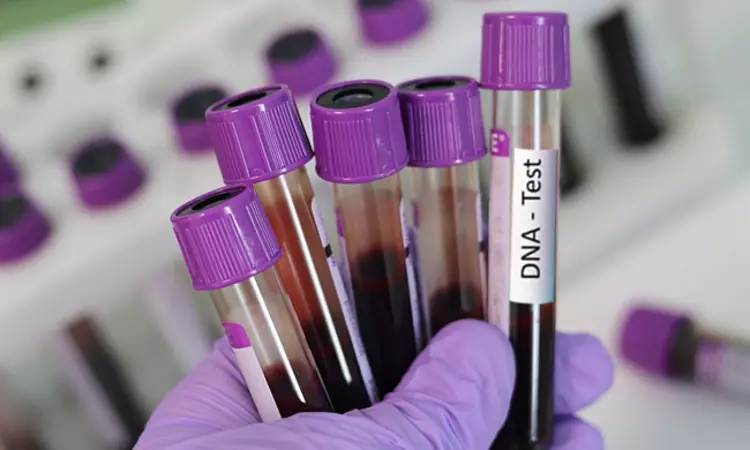- Home
- /
- High Courts
- /
- Delhi High Court
- /
- Delhi High Court Upholds 24-Yr-Old...
Delhi High Court Upholds 24-Yr-Old Man's Conviction For Rape Of 60-Yr-Old Woman, Says Electropherogram Report Not Must With DNA Evidence
Kapil Dhyani
10 Jun 2025 9:15 PM IST
The Delhi High Court recently upheld the conviction and sentence imposed upon a 24 years old boy for committing rape upon a 60 years old woman.In doing so, Justice Sanjeev Narula rejected the youth's plea that in the absence of the “Electropherogram” report, the DNA evidence was insufficient to corroborate the Prosecutrix's version. It observed,“The DNA report from the Regional...
The Delhi High Court recently upheld the conviction and sentence imposed upon a 24 years old boy for committing rape upon a 60 years old woman.
In doing so, Justice Sanjeev Narula rejected the youth's plea that in the absence of the “Electropherogram” report, the DNA evidence was insufficient to corroborate the Prosecutrix's version. It observed,
“The DNA report from the Regional Forensic Science Laboratory comprehensively explains the conclusions of the DNA examination, establishing a match between the Appellant's DNA profile and the DNA profiles generated from the exhibits…no forensic expert was summoned to rebut PW-10's findings, nor was any precedent or technical material placed on record to suggest that the absence of the electropherogram rendered the DNA analysis unreliable or incomplete.”
The Court further noted that the Trial Court had specifically queried the doctor, who proved the DNA report, as to why the Electropherogram report was not furnished to anyone. In response, she had explained that it is a highly technical document readable only by individuals with specialized training. She had further clarified that the “Allelic Data” report, which is derived from and based on the Electropherogram, is the accessible and interpretable document.
Therefore, the Court held that the contents and findings of the Electropherogram were effectively encapsulated in the Allelic Data report, which was proved by an expert witness and as such, the contention that the evidentiary value of the DNA report is diminished due to the absence of the Electropherogram report is without merit.
The Appellant had been convicted under Section 376 IPC and sentenced to undergo rigorous imprisonment for a period of 12 years.
It was alleged that he entered the jhuggi of the Prosecutrix in an inebriated state in the wee hours, covered her mouth and forcibly raped her.
Appellant denied all allegations and incriminating circumstances put to him. He contended that the sequence of events as narrated by the Prosecutrix is marred by contradictions that undermine the credibility of her account. No independent public witness has been examined.
Further, he argued that the alleged incident occurred within a congested jhuggi cluster, where neighbouring dwellings are admittedly in close proximity, and thus Prosecutirx's claim of having raised an alarm without any response is implausible.
Prosecution on the other hand submitted that its case is duly corroborated by scientific and medical evidence, including the DNA report, which has not been successfully impeached at trial. Further, the nature of the crime and the place of occurrence, a private, enclosed jhuggi, reasonably explains the absence of eyewitnesses.
At the outset, the High Court conceded that the Prosecutrix's cross-examination reveals the emergence of several details not present in her earlier statements, alongside certain inconsistencies.
However, it held that the discrepancies are minor and do not, in any meaningful way, undermine the substantive credibility of her account.
The Court held that in assessing whether the inconsistencies in the Prosecutrix's deposition undermine the integrity of the Prosecution's case, it is essential to bear in mind that the testimony of a rape survivor must not be evaluated with a “hyper-technical” mind set.
“The omissions and additions elicited during cross-examination, such as the absence of a door, the lack of a clock, the approximate timing of the offence, or the familial discord with neighbouring relatives, do not pertain to the core allegation of sexual assault. Rather, they concern peripheral aspects that often elude precision in recollection, especially from a traumatised witness recounting events in a high-stress environment,” it observed in the facts of the case.
At the highest level, the Court said, her testimony may be classified as neither wholly reliable nor wholly unreliable. In such cases, it held, the rule of prudence demands that the testimony be corroborated in material particulars.
It then turned to the DNA report from the Regional Forensic Science Laboratory and held that in the absence of any substantive cross-examination or expert rebuttal, there is no reason to doubt the integrity of the DNA evidence, which provides compelling scientific corroboration of the Prosecutrix's testimony.
So far as absence of public witnesses is concerned, the High Court held,
“It is well-settled that offences of this nature are often committed in isolated or secluded locations, where the presence of eyewitnesses is generally rare or altogether absent…The law does not mandate the presence of public witnesses for every offence, particularly when the alleged act transpires in a private, enclosed space, at a time when most residents in the vicinity would naturally be asleep.”
As such, the convict's appeal was dismissed.
Appearance: Mr. Adit S. Pujari (DHCLSC), Mr. Bhavesh Seth and Ms. Mantika Vohra, Advocates for Appellant; Mr. Mukesh Kumar, APP for State with Mr. Vinod Bhati, SI, PSMehrauli.
Case title: Sanjay @ Sanju v. State
Citation: 2025 LiveLaw (Del) 670
Case no.: CRL.A. 575/2018



